How Rob Ashford Made a One-Night-Only Performance in Tangier the Theater World’s Hottest Ticket
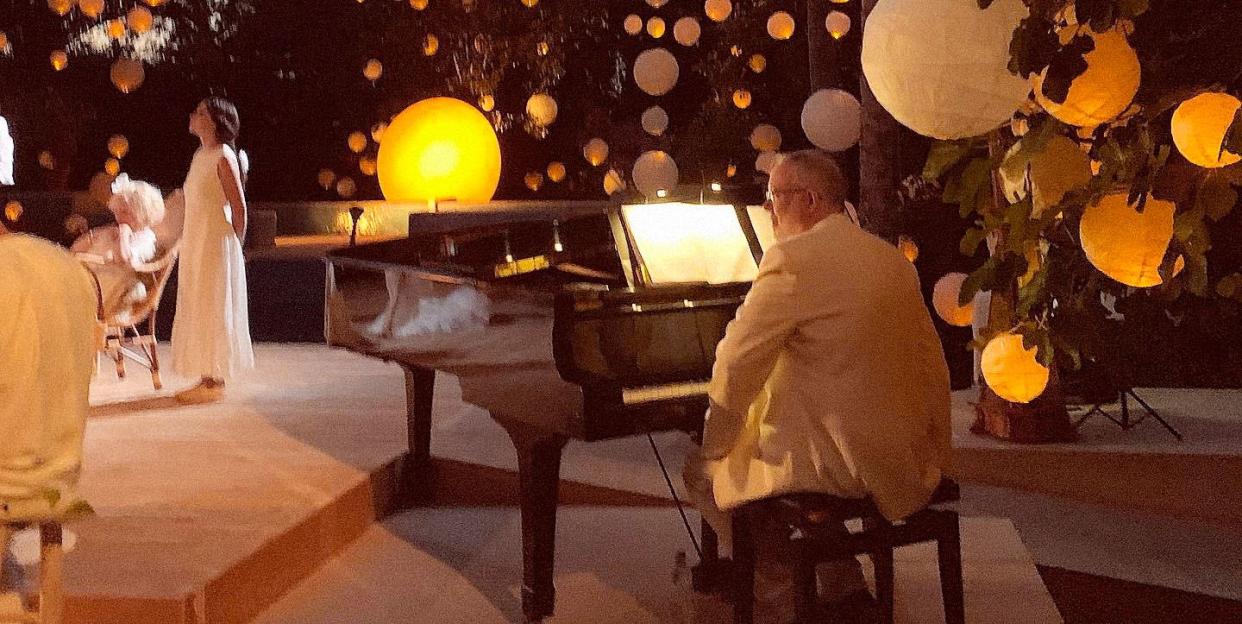
Rob Ashford needed a break. In 2013, as the director was preparing to helm both his first opera, The Barber of Seville at the Lyric Opera of Chicago, and a production of Macbeth in Manchester starring Kenneth Branagh, he and his partner Kevin Ryan decided to vacation in Tangier, Morocco. During the visit Ashford, who won a Tony in 2002 for choreographing Thoroughly Modern Millie, first heard about Joe McPhillips, the late headmaster of the American School of Tangier, who each year would stage and direct an unusual play at the high school for international students.
“He did some crazy productions,” Ashford says. “For instance, Yves Saint Laurent did costumes and Paul Bowles composed the music for the Euripides play Hippolytus.” When McPhillips died in 2007, the productions stopped. Hearing this, Ashford, Ryan, and their friend, the garden designer Madison Cox, wondered: What if we staged a show ourselves? They would call in favors and do a single performance with proceeds going to local charities.
In August 2015 Ashford, who spends about 12 weeks a year in Tangier, put on a reading of Suddenly Last Summer with Ruth Wilson, and since then things have become more ambitious. He has staged The Crucible with Branagh, After the Dance with Jessie Buckley, and A Little Night Music with Tony Goldwyn. Designer Gene Meyer, milliner Stephen Jones, and editor Hamish Bowles have all contributed costumes; Marisa Berenson is often involved; and attendees have included Lynn Wyatt, Calvin Klein, Colin Callender, and Princess Uma of Morvi.
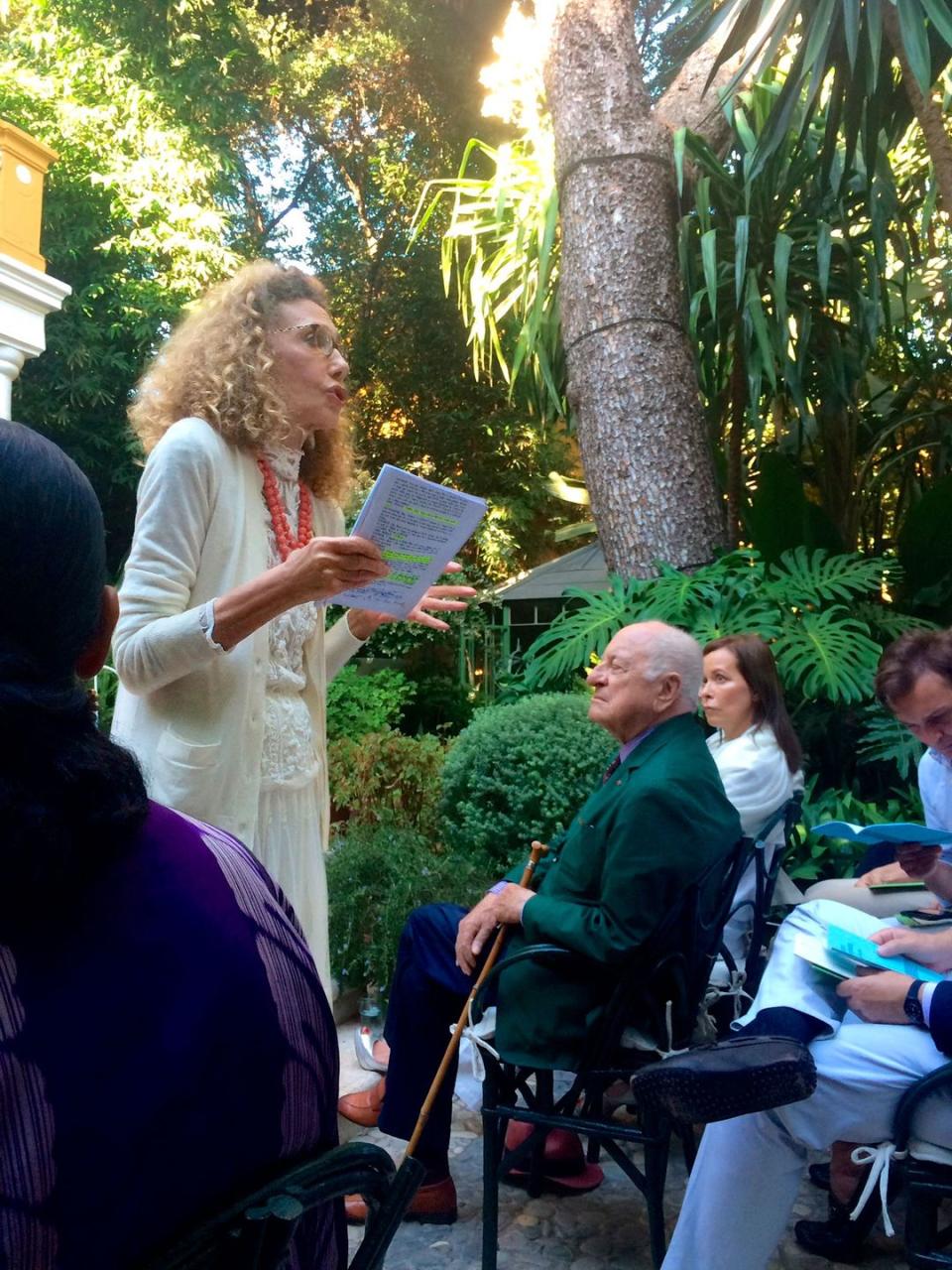
This June, after a three-year hiatus, the Tangier plays will return with Stephen Sondheim’s Follies. The cast will include Goldwyn and Berenson, and tickets, which run from $250 to $2,000, are already sold out. Here, Ashford and a group of his stars, friends, and cohorts recall how a wild idea in a faraway land became a tentpole of the international creative set’s summer adventures, and one of the most sought-after invites of the year.
VEERE GRENNEY, interior designer: Tangier has always attracted theatrical people.
COX: Rob was intrigued that Tennessee Williams was inspired by a stay in Tangier to write Suddenly Last Summer.
ASHFORD: I asked Ruth Wilson to play Liz Taylor’s part, and we did it on the terrace of Villa Léon l’Africain, where Pierre Bergé had lived with Saint Laurent. The actors rehearsed for a week, wore their own clothes, and carried scripts.
SUMMER STRALLEN, actress: I frantically ran around the souk to get something resembling what a nurse would wear.
LINDA LAVIN: I had only seen Suddenly Last Summer the movie, but it made no sense. When Rob mentioned the cast, it was an offer we couldn’t refuse. We had the best damn time. The whole week was like being in a No?l Coward play.
GRENNEY: We thought it would be a one-off event, but the next year Rob came to visit my new house. He took one look at the drawing room and decided he wanted to stage Terence Rattigan’s After the Dance right there.
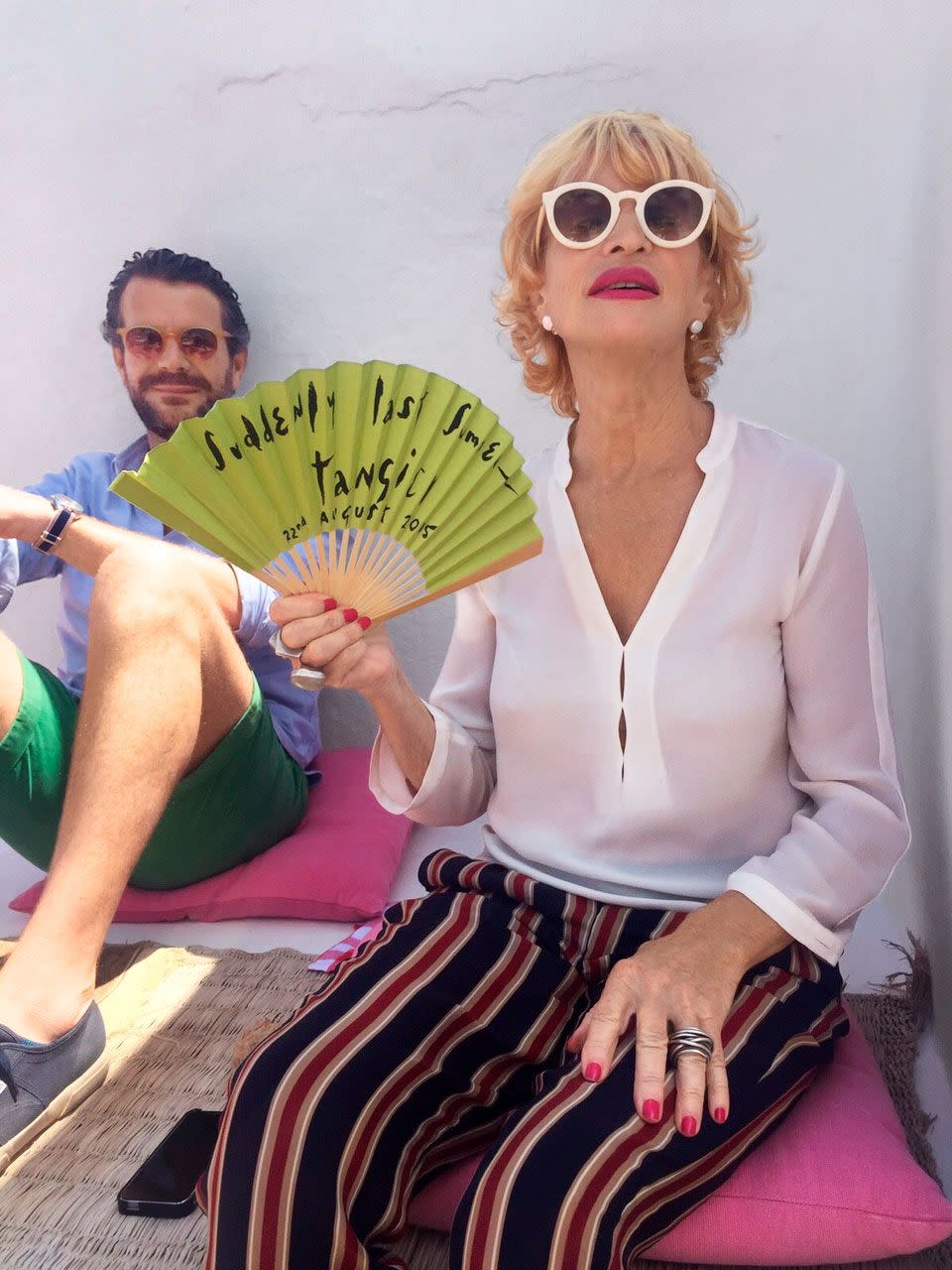
ASHFORD: I had just worked with Jessie Buckley, so she came to act. She was dating James Norton, so he agreed to be in it too.
PHIL DUNSTER, actor: I had just been cast in Rob and Kenneth’s production of The Entertainer, and Rob got in touch to do this play in Tangier. I was nervous. At the time I didn’t know where Tangier was.
ASHFORD: The audience sat on ballroom chairs. Hamish Bowles did the costumes, but the airline lost two suitcases, which didn’t arrive until the day of the performance. The next year we did The Crucible. You don’t want something too dense. I asked Ken, who had come to visit us a few times, “Would you give us your John Proctor?” Derek Jacobi had just worked with us in The Winter’s Tale. Bertie Carvel and I had done Parade. We asked Veere if we could build a stage over his pool.
ANSU KABIA, actor: My agent called to say, “Rob and Ken want you to be in The Crucible in Tangier.” I was like, “Why not?”
BERTIE CARVEL, actor: What’s not to love in doing The Crucible with Kenneth Branagh? You just have to not fuck it up.
ASHFORD: I’d brought a lighting designer from London. During the big courtroom scene, someone turned a switch a half a mile away, and all the lights on the stage went out.
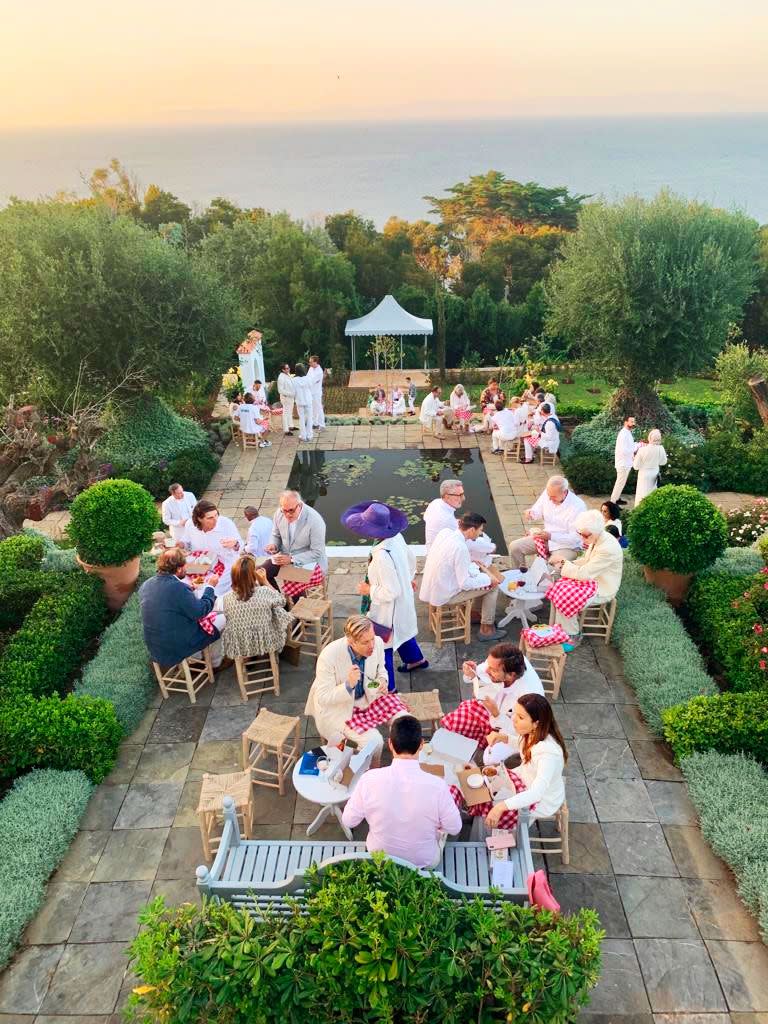
DUNSTER: Quick as a flash, Ken grabbed someone’s phone and used it as a torch. It added to the mystique.
BRANAGH: My having mastered the torch on my mobile phone suddenly provided an amusing short-term lifeline for the production. A combination of that and Derek Jacobi’s ability to act brilliantly by candlelight made for a great story of Dunkirk spirit!
ASHFORD: The year after, we did A Little Night Music. The first act was in daylight, and the second in the dark, with 300 paper lanterns glowing. In between, the audience had a picnic overlooking the Strait of Gibraltar.
GOLDWYN: It was the fantasy of theater camp, but with professionals.
STRALLEN: We were having lunch between rehearsals, and Christine Ebersole said she was going to call home to talk to her bird. They had a full-blown conversation.
GOLDWYN: For the performance we were all dressed in white, and the audience had to dress in white. It was an artistic happening, like an actual midsummer night’s dream. I never thought we’d pull it off.
STRALLEN: I had to sing “The Miller’s Son,” which is a hard song. I was singing it in my sleep all week. I wish it had been recorded. I literally have no idea what happened.
ASHFORD: I promised the actors we’d never tape a performance. They’re learning it in a week! It’s not fair to them. We have thought about doing a second performance.
RYAN: I try to squeeze in as many people as we can, but we don’t have the space for more than 150. I could sell another 50 tickets, but we’d have to destroy Veere’s garden.
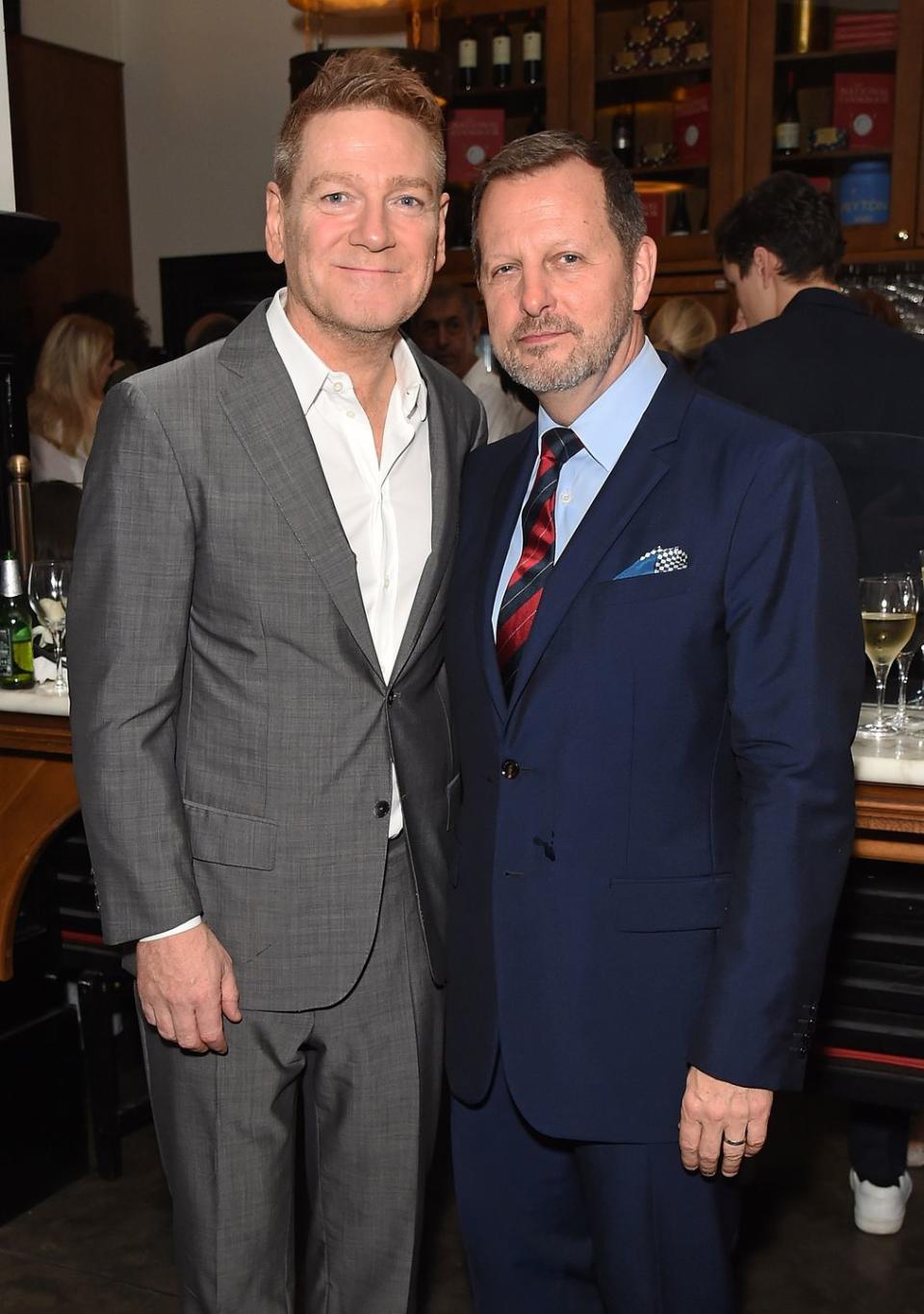
ASHFORD: We sold out this summer’s production of Follies in three days.
DUNSTER: You get the thrill of opening night without the potential mind-numbing drudgery of doing it another six months.
ASHFORD: These are all pros. They know what they’re getting into. They always say, “Call me the next time. I’d love to come back.”
BERENSON: I’m playing Solange in Follies. She sings “Ah, Paris.” It’s a difficult song to sing. I’m studying it as we speak.
GOLDWYN: I’ve got a couple of months to learn the music. I would like to be better prepared this time. Sondheim is a high-wire act.
GRENNEY: Is it challenging to do something like this in Tangier? It’s challenging even in East Hampton. It’s like giving a great party. You’ve got one shot, and you pray it all works out.
You Might Also Like
